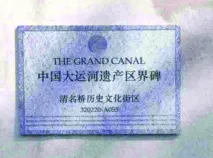State financial supervision and administration bureau
Notice on Issuing the Interim Measures for Supervision, Rating and Classification of Trust Companies
Jin Gui [2023] No.11
All regulatory bureaus, trust guarantee fund companies, trust registration companies and trust industry associations:
The Interim Measures for Supervision, Rating and Classification of Trust Companies are hereby printed and distributed to you, please follow them.
State financial supervision and administration bureau
November 7, 2023
(This copy is sent to all regulatory sub-bureaus)
Supervision rating and classification supervision of trust companiesinterim procedures
Chapter I General Provisions
the first These Measures are formulated in accordance with the Banking Supervision Law of the People’s Republic of China, the Trust Law of People’s Republic of China (PRC), the Measures for the Administration of Trust Companies (Order No.2 of China Banking Regulatory Commission, 2007) and other laws and regulations in order to comprehensively evaluate the stable operation and systematic influence of trust companies, effectively implement classified supervision and promote the sustained, healthy operation and differentiated development of trust companies.
the second These Measures are applicable to trust companies established in People’s Republic of China (PRC) according to law. Trust companies that have been in business for less than one fiscal year and have entered bankruptcy procedures do not participate in regulatory rating.
Article The supervision rating of trust companies refers to the supervision work that the General Administration of Financial Supervision and its dispatched offices make evaluation and judgment on the management status and overall risk of trust companies in accordance with these Measures in combination with the daily supervision and other relevant information.
The systematic impact assessment of trust companies refers to the supervision work that the General Administration of Financial Supervision, in combination with the relevant information mastered by daily supervision, makes a judgment on the impact of the operating conditions of a single trust company on the overall stability of the financial system and the ability to serve the real economy in accordance with these Measures.
The results of supervision rating and systematic impact assessment of trust companies are the basis for implementing classified supervision.
The General Administration of Financial Supervision and its dispatched offices are hereinafter referred to as regulatory agencies.
Article 4 Classified supervision refers to the regulatory policy that the regulatory authorities implement different treatments for trust companies with different levels and systematic influence in terms of market access, business scope, regulatory standards, regulatory intensity, regulatory resource allocation and specific regulatory measures according to the annual regulatory rating results of trust companies and the results of systematic impact assessment.
Article 5 The regulatory rating and systematic impact assessment of trust companies shall be organized and implemented by the regulatory agencies in accordance with the principles of legal compliance, objectivity, impartiality and overall prudence.
Chapter II Regulatory Rating Elements and Rating Methods
Article 6 The supervision rating of trust companies includes five modules: corporate governance, capital requirements, risk management, behavior management and business transformation. There are several rating elements in each module, which are composed of qualitative elements and quantitative indicators.
The regulatory rating method of trust companies mainly includes the following contents:
(1) Weight setting of rating module. The rating score is 100, and the score weights of each rating module are as follows: corporate governance (20%), capital requirements (20%), risk management (20%), behavior management (30%) and business transformation (10%).
(2) Score of rating elements. Set scores for each rating element, in which the evaluation points and scoring principles are set for qualitative elements, and the index value requirements are clear for quantitative indicators. The score of rating elements is determined by the regulatory rating personnel according to the actual situation of the company, the evaluation points, scoring principles and index value requirements, and combined with professional judgment.
(3) Score of rating module. The score of rating module is the sum of the scores of all rating elements.
(4) Rating score. The rating score is obtained by weighting and summarizing the scores of each rating module according to the module weight.
(5) Determination of grades. According to the rating score, determine the preliminary level of the trust company’s regulatory rating. On this basis, combined with regulatory rating adjustment factors, regulatory rating results are formed.
Article 7 If any of the following circumstances exists in the trust company during the evaluation period, the regulatory agency may increase its initial evaluation score:
(1) For a company that continues to operate normally, the registered capital of the company is increased by more than 10% (inclusive);
(two) to assist the regulatory agencies in risk disposal of other financial institutions;
(3) Other circumstances recognized by the regulatory authorities.
Article 8 If any of the following circumstances exists in the trust company during the evaluation period, the regulatory agency shall lower its preliminary evaluation results.
(a) in any of the following circumstances, the preliminary evaluation results will be lowered by one level:
1. Carry out the channel business of providing regulatory arbitrage for other financial institutions for many times or in large quantities;
2. Selling trust products to unqualified investors for many times;
3. Issue a large number of bottom commitment letters to trust product investors;
4. Newly develop non-standard fund pool business;
5. Rigid redemption of trust products in violation of the new regulations on asset management;
6. Engaging in unauthorized business in violation of regulations.
(two) in any of the following circumstances, the preliminary evaluation results are lowered by two levels:
1. Deliberately concealing major issues or problems from regulatory agencies, resulting in serious consequences;
2. Conducting illegal related party transactions for many times or in large quantities, which leads to the occupation of the company’s assets or seriously damages the legitimate rights and interests of investors;
3. Major criminal-related cases occur, causing major business risks or adverse social impacts. If the company actively eliminates or mitigates the harmful consequences of the criminal cases discovered by self-examination, it may only be downgraded by one level.
(3) If one of the following major negative factors occurs, resulting in major business risks of the company, the regulatory rating result shall not be higher than level 5: Party building is seriously weakened, corporate governance is seriously flawed, and financial fraud and data fraud are serious.
(four) other circumstances that should be downgraded by the regulatory authorities, depending on the seriousness of the circumstances.
Article 9 The regulatory rating results of trust companies are divided into 1-6 grades. The greater the value, the greater the institutional risk and the higher the degree of regulatory concern. Among them, the final score of regulatory rating above 90 points (inclusive) is level 1, and 80 points (inclusive)-90 is level 2; 70 (inclusive)-80 is divided into 3 grades, and 60 (inclusive)-70 is divided into 4 grades; 40 points (inclusive)-60 is divided into 5 levels; The score below 40 is level 6. The regulatory rating result of Grade 3 or above is good.
Article 10 The General Administration of Financial Supervision can adjust the rating elements, evaluation points and scoring principles appropriately according to the key points of industry supervision, the operating conditions and risk characteristics of trust companies every year, and make it clear before the supervision and rating work is carried out every year.
Chapter III Organization and Implementation of Regulatory Rating
Article 11 The supervision and rating cycle of trust companies is one year, and the evaluation period is from January 1 to December 31 of the previous year. In principle, all the work of rating in the previous year should be completed before the end of April each year.
Article 12 The supervision rating of trust companies shall be organized by the trust supervision department of the General Administration of Financial Supervision, with the assistance of relevant departments, and implemented by each dispatched institution. According to the procedures of initial evaluation of dispatched institutions, review by the General Administration of Financial Supervision, feedback of regulatory rating results and file collection.
Article 13 The General Administration of Financial Supervision promotes the online supervision and rating of trust companies in an orderly manner, tracks and manages the rating process, and enhances the standardization and accuracy of the supervision and rating of trust companies.
Article 14 Trust companies shall truthfully provide relevant data and information to the dispatched offices of the General Administration of Financial Supervision in accordance with these Measures, reflecting their own situation, existing problems and regulatory measures taken, and report to the dispatched offices of the General Administration of Financial Supervision before March 1 each year. When the dispatched office of the General Administration of Financial Supervision finds that the data and information are distorted, it shall check with the trust company in time and use the revised data and information for regulatory rating.
The agency of the General Administration of Financial Supervision shall continuously, comprehensively and deeply collect all kinds of information required for supervision rating, including but not limited to: off-site supervision information, on-site inspection reports, special supervision reports, the company’s relevant system and measures, internal and external audit reports, annual business plans and other management documents, letters and visits, illegal reports and other important internal and external information.
Article 15 The initial evaluation of regulatory rating shall be led by the institutional supervision department of the agency dispatched by the General Administration of Financial Supervision, and the opinions of on-site inspection, information technology, consumer rights protection and other relevant regulatory departments shall be fully solicited during the initial evaluation. The dispatched office of the General Administration of Financial Supervision shall comprehensively analyze the relevant information of trust companies, and carry out preliminary evaluation of regulatory rating in accordance with the rating methods and standards stipulated in these Measures to form preliminary evaluation results.
The preliminary evaluation results shall be submitted by the agency dispatched by the General Administration of Financial Supervision to the General Administration of Financial Supervision before March 31 each year.
The evaluation of each rating element in the initial evaluation should be in-depth, fully justified and reasonable, accurately reflect the actual situation of the trust company, and if necessary, check the relevant issues through on-site visits and supervision talks.
Article 16 The General Administration of Financial Supervision shall review the preliminary results of the regulatory rating, determine the final results of the regulatory rating of trust companies, and feed back the final results to the agencies dispatched by the General Administration of Financial Supervision.
Article 17 The agency of the General Administration of Financial Supervision shall notify the trust company of the final rating results and the main risks and problems existing in the trust company through supervision talks, off-site supervision opinions and supervision notifications, and put forward supervision opinions and rectification requirements.
The agency of the General Administration of Financial Supervision should pay more attention to the rating score of a single module of a trust company. If the score of a single module is lower than 60% of the full score of the module or the score has dropped significantly for two consecutive years, it should urge the trust company to formulate a rectification plan to improve the module as appropriate, and take corresponding regulatory measures and actions according to law.
Article 18 After the completion of the annual regulatory rating work, if the management status or risk of a trust company has undergone major changes due to major changes in corporate governance and equity management, major emergencies or major criminal cases, liquidity crisis, and other major events that have a substantial impact on the regulatory rating, the agency dispatched by the General Administration of Financial Supervision may apply for dynamic adjustment of the regulatory rating results.
The dynamic adjustment of regulatory rating should perform the procedures of initial evaluation, review, result feedback and data archiving.
Article 19 After all the rating work is completed, the regulatory agency shall archive the rating information, rating working papers, rating results, rating result feedback and other related documents and materials.
Article 20 The regulatory rating results of trust companies should be used as an important basis for comprehensively measuring the operating conditions, management capabilities and risk levels of trust companies.
The regulatory rating result is Grade 1, which indicates that the trust company is relatively sound in all aspects of operation and management, with minor problems, which can be solved by improving daily operation and management, and has strong risk resistance.
The regulatory rating result is Grade 2, which indicates that all aspects of the trust company’s operation and management are basically sound, and the risk resistance is good. There are some problems that need to be corrected in daily operation and management, which need to attract the attention of the company and regulatory agencies.
The regulatory rating result is Grade 3, indicating that there are some obvious problems in the operation and management of trust companies. Although they can basically resist the risk challenges brought about by changes in the operating environment, if the existing problems are not corrected in time, they may lead to operational difficulties and deterioration of risk status, so we should pay special attention to them and take necessary regulatory measures.
The regulatory rating result is Grade 4, which indicates that there are many or serious problems in the operation and management of the trust company, which have not been effectively handled or solved, which is likely to affect its ability to continue to operate, and it is necessary for the supervision to pay close attention to it and take corrective measures immediately.
The regulatory rating result is Grade 5, which indicates that there are very serious problems in the operation and management of trust companies, with high risks, and they are likely to fall into operational difficulties, so it is necessary to strengthen the supervision of marking prevention or personal supervision. The regulatory agency may, according to needs, control the trust company’s operation and management activities such as allocating funds, disposing of assets, deploying personnel, using seals, concluding and performing contracts according to law. At the same time, urge the company and shareholders to take self-help measures immediately and deal with risks through market-oriented restructuring, bankruptcy restructuring and other measures to avoid business failure.
The regulatory rating result is Grade 6, which indicates that the trust company’s management is chaotic and risky, which is beyond the self-help ability of the institution itself and its shareholders. A credit crisis may or may have occurred, and individual institutions have lost their ability to continue to operate. If necessary, it is necessary to upgrade supervision or administrative takeover to avoid adverse effects on financial stability. Trust companies identified as high-risk institutions by the General Administration of Financial Supervision do not need to participate in the initial evaluation, and the rating result is directly rated as 6.
Article 21 The General Administration of Financial Supervision analyzes the development of the annual regulatory rating work and the rating results, and, in combination with the actual situation, makes a post-evaluation of the regulatory rating work and its effect in a timely manner, sums up experiences and lessons, and continuously improves and perfects the regulatory rating system of trust companies.
Article 22 China Trust Industry Guarantee Fund Co., Ltd., China Trust Registration Co., Ltd. and china trustee association should actively cooperate with the regulatory agencies to provide support for the regulatory rating work.
Chapter IV Systematic Impact Assessment
Article 23 The factors of systematic impact assessment of trust companies include the scale of various trust assets entrusted by the company, the number of natural person investors in asset management trusts, the number of investors in financial institutions and the scale of related trust assets, and the balance of inter-bank liabilities.
Article 24 The General Administration of Financial Supervision takes the lead in carrying out the systematic impact assessment of trust companies, and the dispatched institutions are responsible for the submission of numerical values and the application of results. The General Administration of Financial Supervision selected 30 trust companies with the largest paid-in trust scale at the end of last year as participating institutions, and evaluated the industry influence of participating institutions according to the following methods:
(1) Evaluation elements and weight setting. The evaluation factors and their weights are as follows: asset management trust assets (25%), asset service trust assets (10%), charity trust assets (5%), number of natural person investors in asset management trust (25%), number of investors in asset management trust financial institutions (15%), trust assets subscribed by financial institutions (15%) and balance of inter-bank liabilities. The General Administration of Financial Supervision may, according to the risk characteristics of the industry and the complexity of the business, appropriately adjust the evaluation elements and the specific weights of each element every year.
(2) Evaluation factor score. The single evaluation elements of the participating institutions are sorted according to the numerical value and then scored in segments.
(3) Assessing the total score. The total evaluation score is obtained by the weighted summary of the scores of each evaluation element.
(4) Evaluation results. Trust companies with systematic influence are those with a total score of 85 or above.
Article 25 The agency of the General Administration of Financial Supervision shall submit the preliminary results of regulatory rating to the General Administration of Financial Supervision, and at the same time, submit the values of the evaluation factors of the systemic impact of trust companies within its jurisdiction.
Article 26 The General Administration of Financial Supervision shall timely feedback the results of the systemic impact assessment of trust companies to the relevant agencies.
Chapter V Classified Supervision
Article 27 The results of regulatory rating and systematic impact assessment are the important basis for regulators to determine regulatory standards and intensity, allocate regulatory resources, carry out market access and adopt differentiated regulatory measures.
The agency of the General Administration of Financial Supervision shall, according to the supervision rating results of trust companies, deeply analyze the risk status and causes of the companies, and adjust the supervision plan of each trust company in combination with the results of single module evaluation and systematic impact evaluation, determine the focus of off-site supervision and the frequency, content and scope of on-site inspection, adjust the supervision standards and access requirements accordingly, and urge the trust companies to rectify the problems found in time.
Article 28 Regulators should gradually strengthen the intensity of off-site supervision according to the supervision rating results of trust companies from grade 1 to grade 6, and correspondingly expand the frequency and scope of on-site inspections. For trust companies with systemic influence, we should further strengthen supervision, raise the standard of prudential supervision, and increase the supervision of behavior.
Article 29 The regulatory agency may, according to the operating conditions and risk status of the trust company reflected by the regulatory rating results, impose restrictive conditions on its business scope and exhibition place according to law. For trust companies with good regulatory rating and systematic influence, priority can be given to piloting innovative businesses.
The General Administration of Financial Supervision may make appropriate adjustments to the classification and supervision conditions according to the development of the industry and the requirements of risk supervision.
Article 30 When a trust company no longer meets the requirements for conducting the corresponding business as stipulated in Article 29 of these Measures due to the decline of the regulatory rating results, it may set a one-year inspection period. If the regulatory rating results for the next year cannot be restored, the trust company shall, in principle, implement the relevant requirements in accordance with Article 29, and if it is really necessary to handle the case on a case-by-case basis, the trust company shall report to the local regulatory agency for approval.
Article 31 Trust companies with good regulatory ratings should actively assume the social responsibility of leading the transformation and development of the industry and helping the industry to resolve risks. When the regulatory authorities dispose of trust companies with risks, they can designate trust companies with good regulatory ratings as custodians or assume corresponding responsibilities.
Article 32 When a trust company pays institutional supervision fees and business supervision fees, the regulatory rating results of grades 1-4 correspond to grades 1-4 of the risk adjustment coefficient in the calculation of supervision fees respectively, and grades 5 and 6 of the regulatory rating results correspond to grades 5 of the risk adjustment coefficient in the calculation of supervision fees. When raising the trust industry protection fund, trust companies with different regulatory rating results implement differentiated standards.
Article 33 In principle, the regulatory rating and systematic impact assessment results of trust companies are only for internal use of regulatory agencies and may not be announced to the public. When necessary, the regulatory agency may notify the relevant government or financial management department in an appropriate way, but it shall be required not to disclose it to a third party. Trust companies shall keep the regulatory rating results and systematic impact assessment results strictly confidential and shall not be used for commercial purposes such as advertising, publicity and marketing.
Chapter VI Supplementary Provisions
Article 34 The General Administration of Financial Supervision shall be responsible for the interpretation of these Measures.
Article 35 These Measures shall come into force as of the date of issuance. The Measures for the Supervision and Rating of Trust Companies (No.187 [2016] of the Banking Supervision Office) shall be abolished at the same time.













